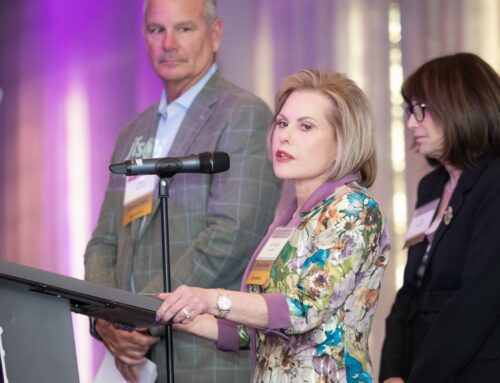In honor of National Doctor’s Day, I wanted to take some time to reflect on the many changes in healthcare and how the role of physicians has evolved to not only include technology that is literally in the hands of patients but to also focus on patient-centered care and engaging the patient in their journey to good health.
I have seen a remarkable change in the physician’s role in my lifetime. I grew up as the son of an OB-GYN physician. My father was a very traditional physician – he wore a tie to the office, would not tolerate anyone calling him anything but Dr. Grenitz and even remarked, “when I was a young doctor, nurses stood up when I walked in the room.” I followed in my father’s footsteps and also became an OB-GYN, but, in contrast, never wore a tie to the office, allowed the nurses to call me by my first name (although NONE ever did it in front of a patient) and was generally more inclusive to those on my “support” team.
Today, the concept of teamwork has become even more prevalent, with physicians being trained to work as part of a care team. That team includes many roles that did not even exist 20 years ago, such as care coordinators. Overall, I believe this inclusion is good for everyone involved. When we work as a team, we get varying perspectives and we are readily reminded to be more human and kind.
Gone are the days of godlike physicians that no one dared to question. Now physicians are, and should be, the leaders of teams that care for our patients not just medically, but socially and psychologically. We take a broader view of the impact disease and treatment can have on the individual and their family.
In addition, technology is playing a larger role every day both in our offices and for our patients – so I’ve chosen to embrace technology with both hands. With that decision, I’ve decided to broaden my focus to not only include my medical practice but to also take on the role of Chief Healthcare Information Officer at Femwell Group Health. I want to have an active role in making technology work for the doctor, care team and patient, instead of vice-versa.
I recently attended my first HIMSS (Health Information Management Systems Society) conference and discovered that there are thousands of physicians, executives, inventors and other partners that want the same thing. Medicine has, and will, continue to evolve and doctors must continue to evolve too. I look forward to actively being a part of the evolution of healthcare.



